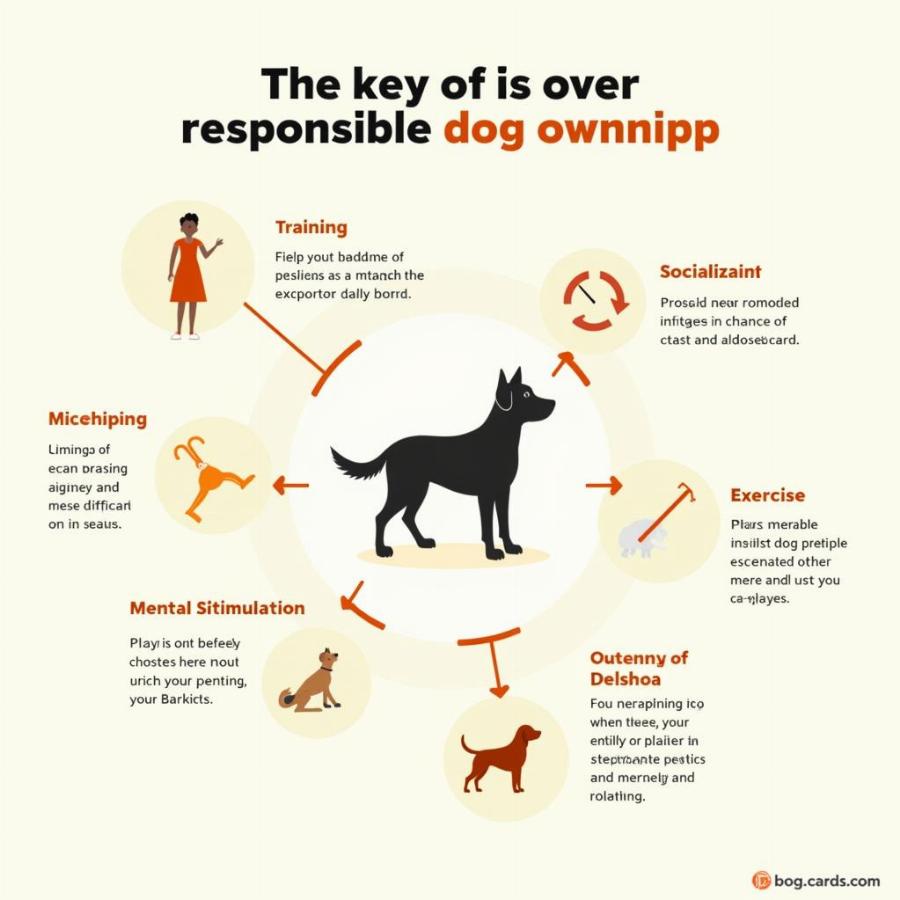Owning a dog is a wonderful experience, but it’s essential to be aware of the laws surrounding certain breeds in the UK. The term “banned dogs UK” refers to specific breeds that are illegal to own without a special exemption. This article will delve into the details of the Dangerous Dogs Act, the four banned breeds, and what responsible dog ownership entails.
What is the Dangerous Dogs Act?
The Dangerous Dogs Act of 1991 was enacted to address concerns about dangerous dogs and reduce dog attacks. The Act focuses on four specific breeds deemed “dangerously out of control,” making it illegal to own, breed, sell, or abandon them.
Which Dog Breeds Are Banned in the UK?
The four banned dog breeds in the UK are:
- Pit Bull Terrier: Originally bred for bull-baiting, this breed is known for its strength and tenacity.
- Japanese Tosa: This large breed was historically bred for dogfighting in Japan and is known for its power and size.
- Dogo Argentino: Bred for big-game hunting in Argentina, this breed is powerful and athletic.
- Fila Brasileiro: Originally bred in Brazil to track and hunt large game, this breed is known for its protective instincts and large size.
Why Are These Breeds Banned?
The Dangerous Dogs Act focuses on breeds considered potentially dangerous due to their physical characteristics and historical breeding purposes. However, it’s important to note that many experts argue that a dog’s behavior is primarily influenced by its environment, training, and socialization, rather than solely its breed.
What Happens If I’m Found With a Banned Breed?
Owning a banned breed without a court exemption is a criminal offense in the UK. Penalties can include fines, imprisonment, and the dog being seized and potentially euthanized.
Responsible Dog Ownership: It’s More Than Just Breed
Regardless of breed, responsible dog ownership is crucial for the safety and well-being of both the dog and the community.
Key Aspects of Responsible Dog Ownership:
- Training and Socialization: Proper training and early socialization are essential for a well-adjusted dog. Enroll in obedience classes and expose your dog to various people, dogs, and environments from a young age.
- Microchipping and Identification: Ensure your dog is microchipped and wears a collar with an ID tag containing your up-to-date contact information.
- Neutering/Spaying: Consider neutering or spaying your dog to prevent unwanted litters and potentially reduce hormone-driven behaviors.
- Exercise and Mental Stimulation: Provide your dog with adequate exercise, playtime, and mental enrichment to prevent boredom and destructive behaviors.
- Health Care: Regular veterinary check-ups, vaccinations, and parasite prevention are crucial for your dog’s health.
 Essential Elements of Responsible Dog Ownership
Essential Elements of Responsible Dog Ownership
What About Similar Breeds?
The Dangerous Dogs Act has been criticized for its focus on breed-specific legislation. Some non-banned breeds share physical characteristics with banned breeds, which can lead to confusion and potential misidentification.
If you are unsure about a particular breed, it’s best to contact your local council or a reputable dog organization for guidance.
The Importance of Education and Awareness
Understanding the Dangerous Dogs Act and the reasons behind it is important for all dog owners and enthusiasts in the UK. By promoting responsible dog ownership, focusing on individual dog behavior, and supporting proper training and socialization, we can create a safer environment for both dogs and people.
FAQs About Banned Dogs in the UK
1. Can I get an exemption to own a banned breed?
It is possible to obtain a court exemption to own a banned breed under very specific circumstances. The dog must be proven to not pose a danger to the public, be microchipped, neutered/spayed, kept on a lead and muzzled in public, and insured.
2. What happens to banned dogs that are seized?
The fate of a seized banned dog depends on various factors, including the individual dog’s temperament and whether an exemption is sought. In some cases, dogs may be euthanized if deemed a danger or if no suitable home can be found.
3. Are there any plans to change the Dangerous Dogs Act?
The Dangerous Dogs Act has been a subject of ongoing debate, with some animal welfare organizations and experts advocating for a shift towards deed-based legislation that focuses on individual dog behavior rather than breed.
Exploring Other Aspects of Dog Ownership
Navigating the complexities of dog ownership goes beyond understanding breed-specific legislation. Beaut Dogs provides a wealth of resources on various aspects of caring for your canine companion. From choosing the right breed to nutrition, training, and healthcare, we’re here to guide you every step of the way.
For personalized advice and answers to your specific dog-related questions, don’t hesitate to reach out to our team of experts at [email protected].
Beaut Dogs is your trusted source for all things dog-related. Visit our website at https://beautdogs.com to explore a world of information and resources dedicated to helping you provide the best possible care for your furry friend.